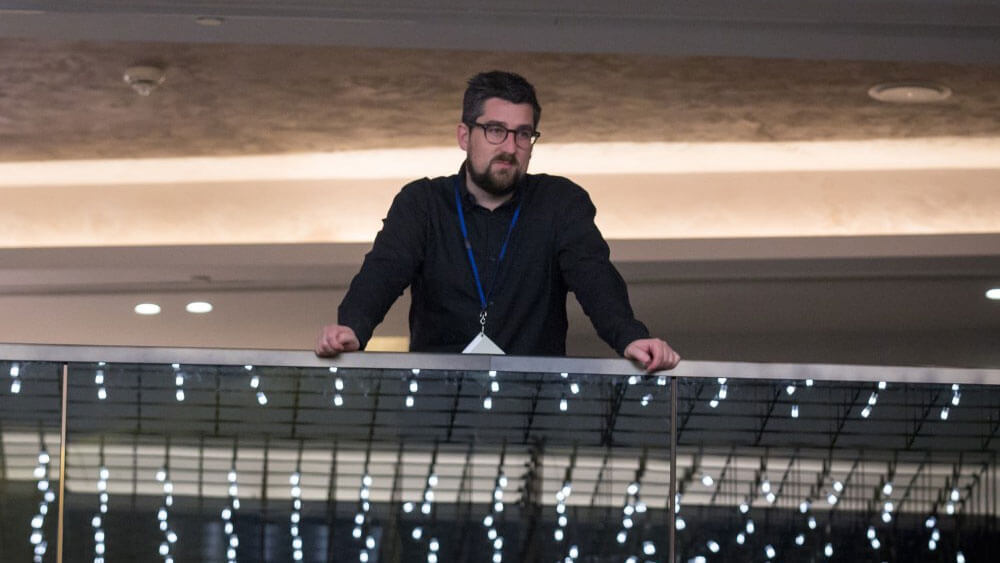
William Thomson, founder of Gallus Events, created Homeless Hackathon Glasgow to come up with solutions to the homelessness problem.
In 2017, William Thomson, founder of Gallus Events, came across a story in a Scottish newspaper, which reported that one homeless person died every week in Glasgow, his hometown. It shocked Thomson, who now lives a thousand miles away in Barcelona, Spain. He asked himself, he told Convene, how he could help. “The only thing I’m good at,” Thomson said, “is organizing events.”
So he put that skill to work, creating Homeless Hackathon Glasgow, which was held April 13–15 in Glasgow and brought together 40 hacker participants, along with representatives from local institutions and nonprofit organizations. Thomson has organized more than 700 events over the past two decades, but had never run a hackathon. He chose the format, he said, because of its potential to yield solutions in a short period of time. Homelessness is “such a desperate, depressing situation that I thought, ‘Well, if we can run a hackathon and at least get one [practical] thing that comes out of this, it will have been a success.’”
Thomson wasn’t an expert on homelessness, but he had connections to Glasgow’s nonprofit sector. “I just started picking up the phone and contacting people and saying, ‘I want to help, I’m planning to run a hackathon. Do you want to get involved? Who should I speak to? What are the areas I should be addressing?’” Thomson ended up inviting representatives from homelessness organizations to the hackathon, where they pitched their projects to help educate participants on effective interventions, he said. Attendees could develop their own ideas or work to improve existing projects.
The result? The weekend-long hackathon yielded not one, but three projects currently under development, including an app that can be used to locate services and another app to facilitate getting surplus food to those who need it. The third project is an app designed to improve communication and shorten the amount of time it takes for The Simon Community, a nonprofit which participated in the hackathon, to connect individuals with services. The work done at the three-day hackathon would have taken the organization months to complete on its own, a Simon Community representative told Thomson.
As a first-time hackathon organizer, Thomson gained practical experience about what worked and what didn’t, much of which he posted on his website. A few people within the meetings industry have contacted him in the last few months, wanting to spread the word about Homeless Hackathon, but Thomson would like to see event organizers take on the challenge of producing events like the one he did. “I definitely feel that event organizers have got the ability to do much more,” Thomson said. “It would be great to get more event organizers to look at the hackathon, and think, ‘I can help.’ Event organizers have got essential skills to contribute,” he added. “Not just in organizing a team, but their contacts and knowledge of how things work and logistics is really, really positive and powerful.
Gallus Events has donated 500 GBP (about $650 USD) as seed funding to anyone who wants to organize a hackathon in Scotland. The money is intended to minimize upfront risk, Thomson said. The profits could then seed another hackathon, he said.
“I try to say to event organizers, ‘You’re in a fortunate position because you’ve got a job and you’re in a secure tenancy or in a house. These are all things that you think are normal, but for a lot of people, it’s as far removed as you having a super yacht or flying to the moon. All of the things that we take as absolute fundamental necessities, people who are homeless don’t have that,’” he said. “What can we do as an industry to help? With the skills that we’ve got, we can do a lot of good.”
For more information, visit gallusevents.co.uk.
